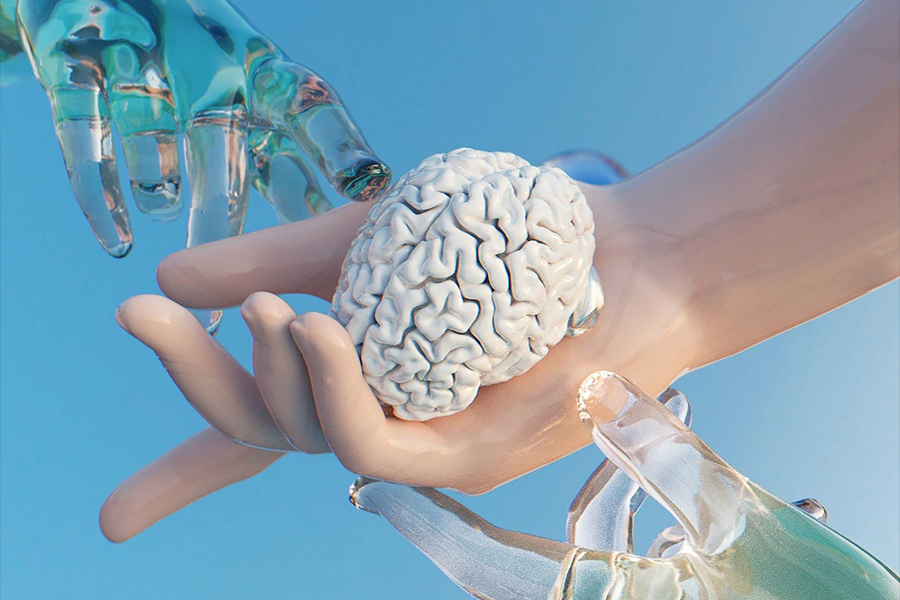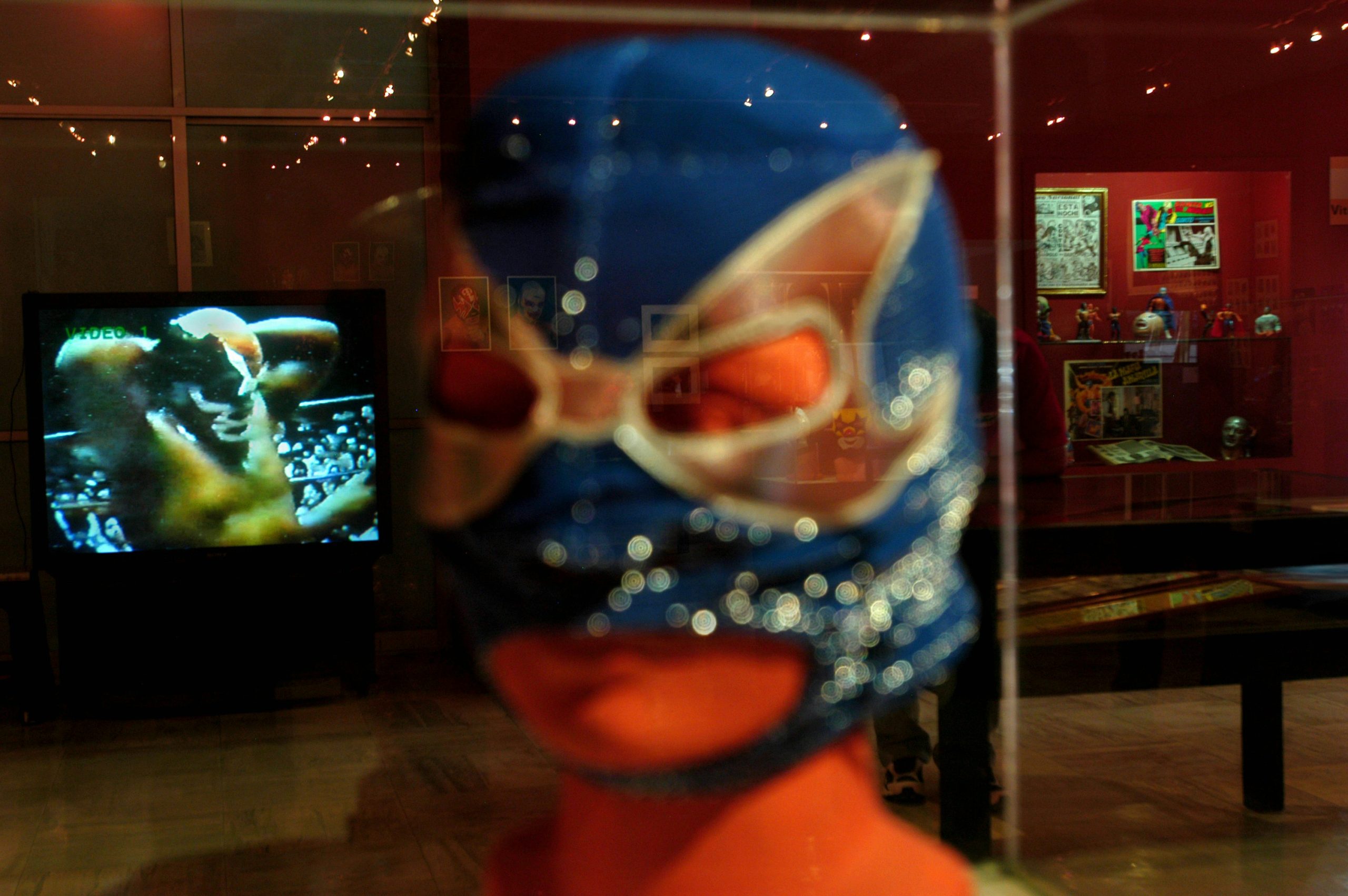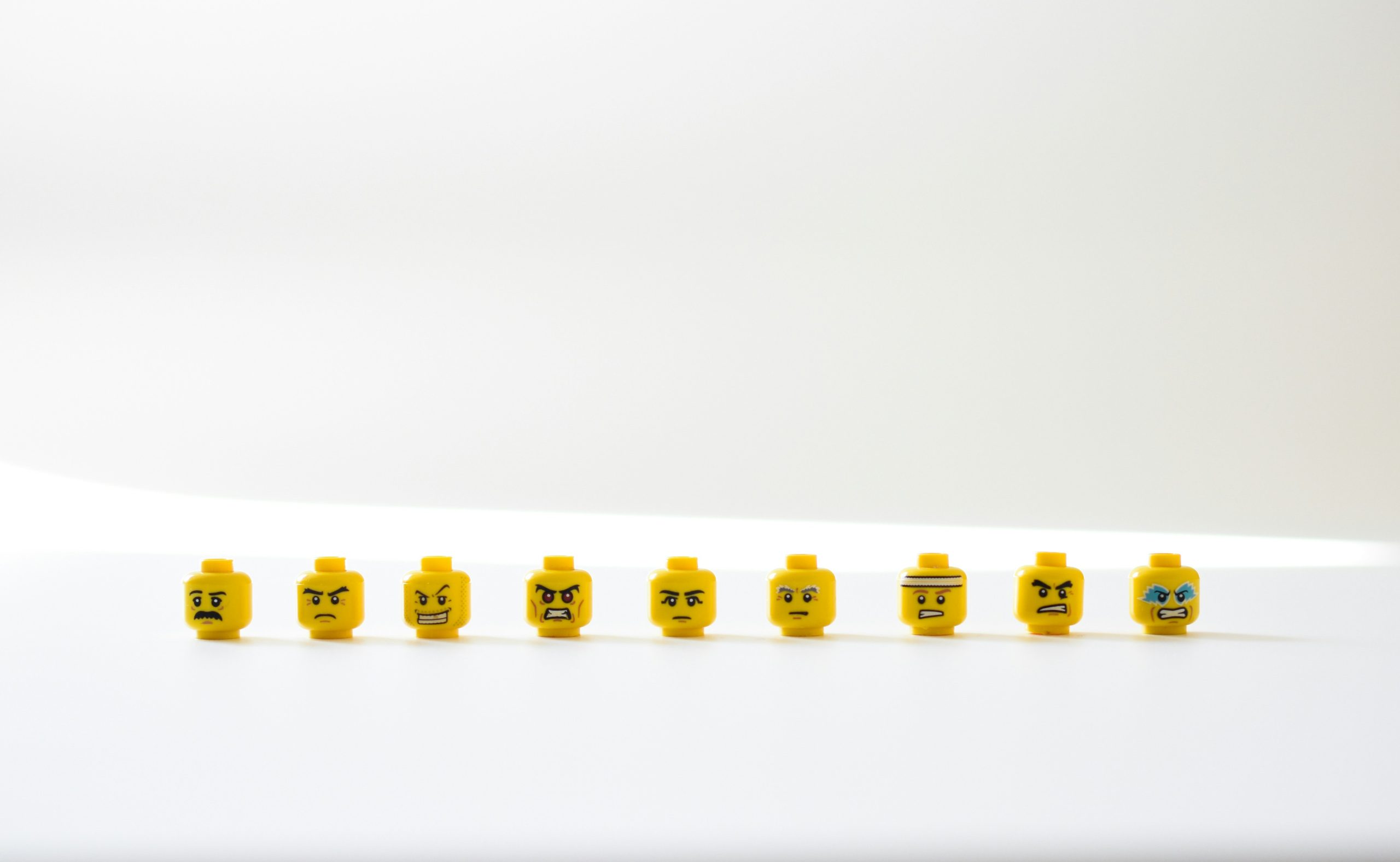What if you could create an experience that not only made people feel better in the short term, but actually changed the very fabric of how they think, feel and act?
Experiences are often seen as synonymous with entertainment. And while experiences can – and often should! – be fun, we’re seeing a huge rise in those that are also functional.
Functional foods or nootropics – engineered products that offer brain-boosting properties, such as coffee or cannabis gummies, detox drinks or personalised vitamin packs, for example – have long moved beyond Silicon Valley’s bright young things and into the mainstream. Why choose junk or even “normal” food, when you can opt for something that will speed up your ongoing quest for self-optimisation?
Just look at London department store Selfridges, who recently launched a permanent in-store “Feel Good Bar” where shoppers can indulge in acupuncture sessions, hypnotherapy, sleep aids, IV drips, bio-hacking and hyperbaric oxygen therapies. Shop til you drip, perhaps.
And now we’ve spotted an exciting emerging trend that takes the same approach, but applies it to the mind rather than body. Based on insights from neuroscience and other scientific research, we call them “functional experiences”: ones that make you smarter, happier, more curious and more creative.

There’s no doubt that we could all do with a little help right now when it comes to combating anxiety, uncertainty and stress. Against a backdrop of soaring economic turmoil, climate catastrophe, Ukrainian-Russian war and the ongoing rumble of Covid, our mental resources are depleted at best. Just this week an American health panel, the US Preventative Services Task Force, recommended that all adults under 65 are routinely screened for anxiety. And according to a study from UCL researchers, generalised anxiety disorder trebled in women aged 18 to 24 between 2008 and 2018, with significant rises in men and women under 55, too.
That’s why these functional experiences couldn’t come at a better time. By using sensory stimulation – or deprivation – to access dream, hypnagogic or even psychedelic states, they have the potential to help us rewire our minds and emerge as stronger, better people – the ultimate realisation of what Joe Pine calls the transformation economy, or “New You” business.
And with consumers more open than ever to mind-expanding experiences – just witness the popularity of Netflix’s series with Michael Pollan, the arrival of ketamine clinics in the US and UK, or a recent paper on how psychedelics can help catalyse scientific creativity and insight – we think they have a sustainable future, too.
Here are a few neuroscience-inspired functional experiences that have already caught our attention:
1. Dreamachine
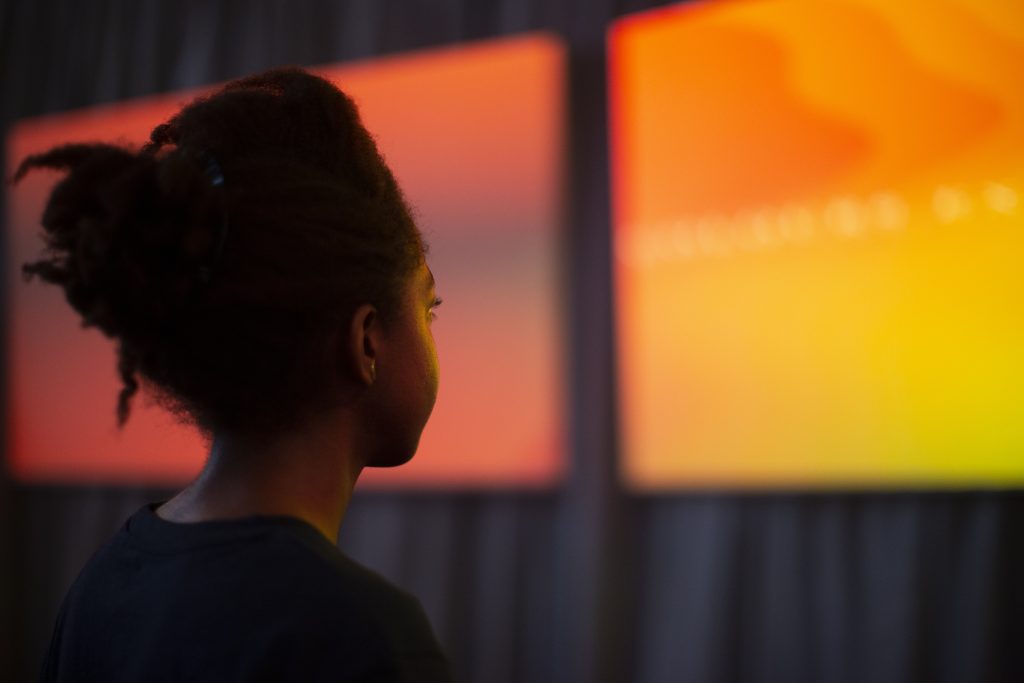
Backed by the Unboxed Festival and put together by a team of experience designers, neuroscientists and artists, Dreamachine is a “one-of-a-kind” immersive experience that uses light and sound to tap into the very nature of perception.
Participants enter a specially designed circular room and have white light shone into their closed eyes to a soundtrack by musician Jon Hopkins, inducing intense visual hallucinations in an homage to a psychedelic technique patented in the ‘60s by Brion Gysin, friend to William Burroughs. Feedback from its UK tour ranges from a relaxing escape to the everyday to “meeting myself at the end of the world”, with partially sighted participants reporting a spectrum of colour they’d previously thought impossible. The team are tracking and measuring responses alongside a “Perception Census” that will help inform future scientific research as well as chart any long-term transformation.
Read our review here – and watch out for a future Campfire talk from Dreamachine’s Director, Jennifer Crook.
2. Theater of the Mind
Talking Heads frontman David Byrne is bringing his immersive, neuroscience-themed Theater of the Mind experience to Denver. According to Denverite, side effects may include a distrust of your own senses, a disorientation of self, and a mild to severely good time. Byrne partnered with research analyst Mala Gaonkar on the project, a playful intersection of art and science based on lab research.
Directed by Andrew Scoville, it invites participants to explore a 15,000-square-foot immersive art installation, engage in a narrative, and take part in multisensory experiments that encourage you to interrogate your identity and understanding of the world, and question your beliefs and memories.
The show uses stories to shape a narrative visitors see, feel, taste and hear. Groups will be escorted through the space by a guide, and as the experiments are informed by guests’ experiences, each visit is different. We’ll be bringing you a future Campfire talk from Scoville delving deeper into the impact of the experience.
3. The Hum
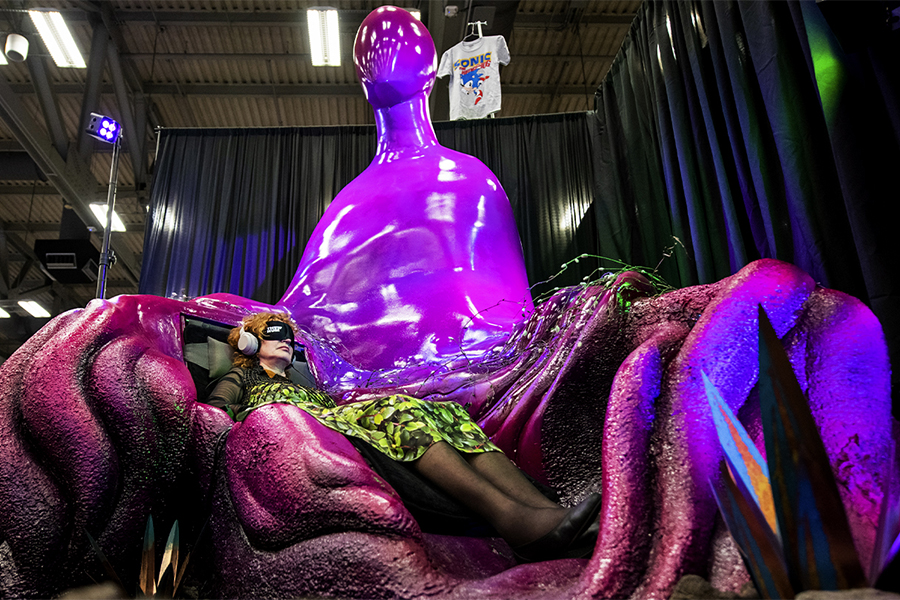
Forging new ground in the arena of sound is Make Some Noise, which launched its first interactive installation at this year’s SXSW festival in Austin. Called The Hum, its aim is to transform the way people listen via a fully immersive sound experience.
The installation is a 10-foot sculptural work with a cradle space where the user can relax and experience the transformative effect vibrations have on the body via vibro acoustic technologies. It features a bespoke soundscape journey via Sony’s 360 Reality Audio, curated by Mobius8 and Snow Raven.
“Our mission is to raise awareness about the impact of sound on our wellbeing and in our world,” said Make Some Noise’s founder, Gen Cleary. “It’s our goal to allow everyone to connect with the multidimensions of sound beyond hearing.” Catch Cleary in her upcoming Campfire talk on 12 October, where she’ll unpack the project further.
4. The Uncertainty Experts
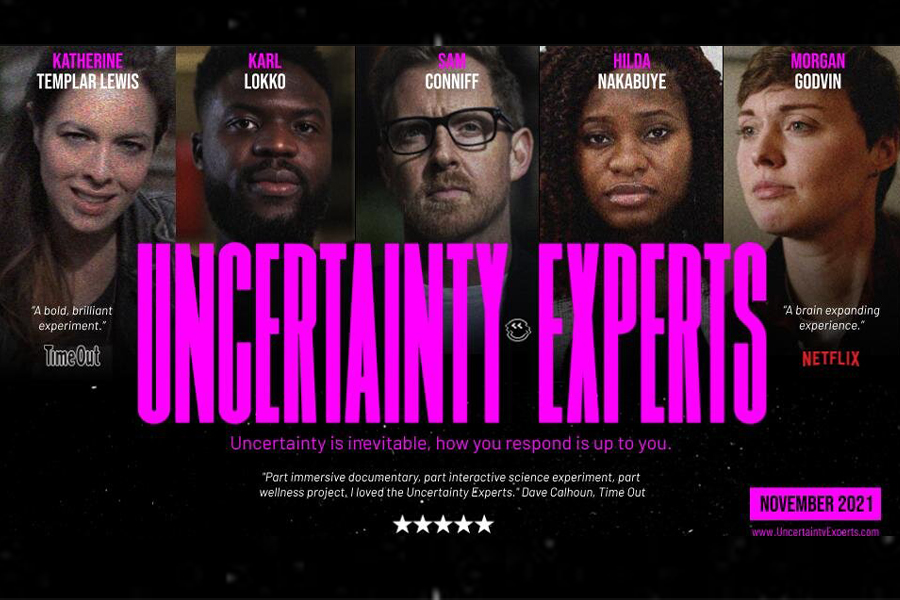
In an increasingly uncertain world, wouldn’t you love to know how to master uncertainty – and even turn it into opportunity? The Uncertainty Experts is an interactive, three-part documentary series built on University College London research that’s part education, part entertainment, and all impact.
Participants complete surveys before, during and after each session, charting the change in their response to uncertainty and learning tools that will last long beyond the session. Read our review here, and stay tuned for a future Campfire from creators Sam Conniff and Katherine Templar-Lewis.
5. Room to Breathe
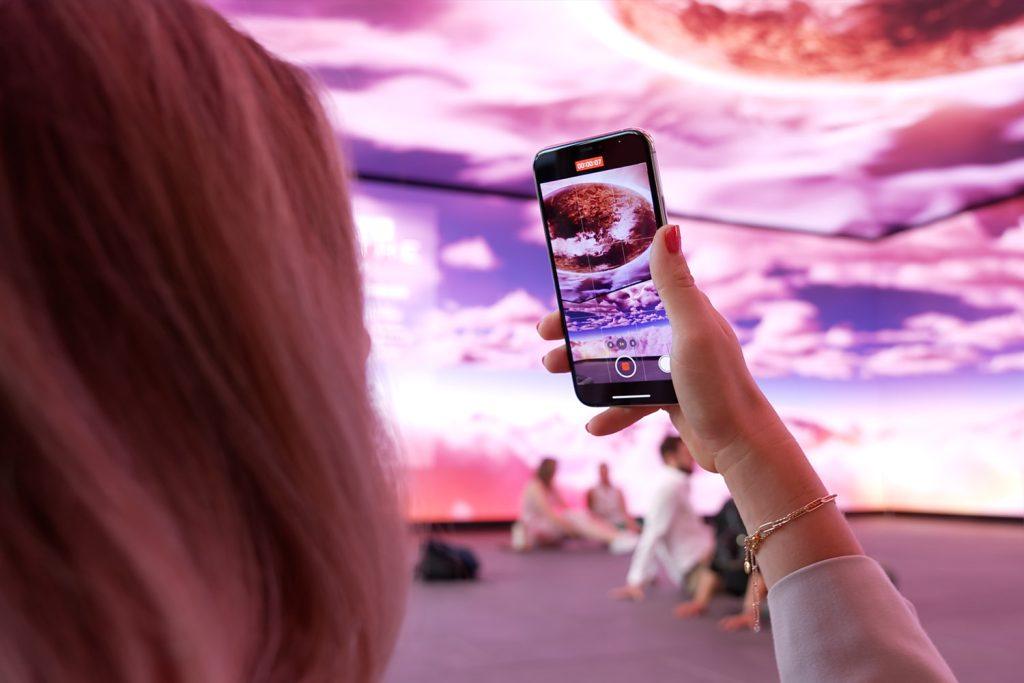
Room to Breathe is a London-based mindfulness experience designed by Pixel Artworks. The soothing sensory experience is based on the science of ‘box-breathing’ and has been developed in conjunction with leading UK trauma and anxiety consultant Jayne Cox to help anxious commuters unwind and catch their breath.
“Anxiety and stress can change the way we breathe, with our breath becoming rapid and shallow, resulting in heightened anxiety. Learning and regularly implementing a simple breathing technique reduces anxiety by helping us have more control over our breath. These techniques can support us anywhere, whether we are on the move or at home,” Cox said.
Original music written by Matthew Wilcock will accompany relaxing vistas of rolling clouds and calm skies, which expand and contract like a rib cage breathing in and out. Restorative music app Sona also uses music to relieve anxiety, using a soundtrack curated by Grammy-winning producers.

